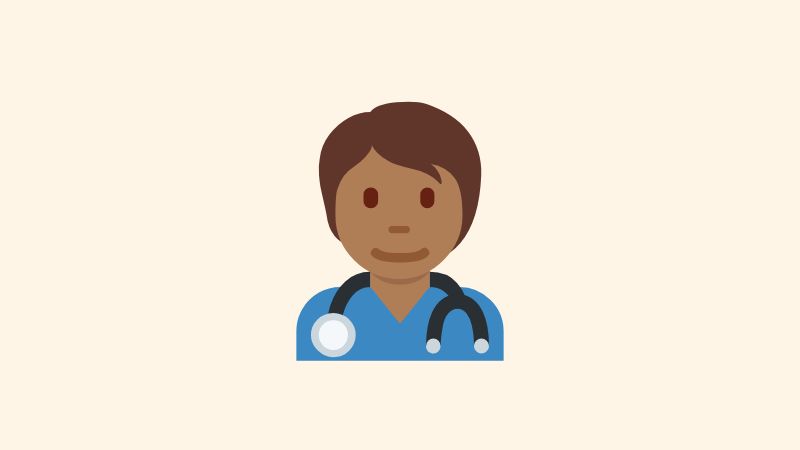Treatment & Your GP
Managing coeliac disease and getting the support you need



Fast Facts:
⚡ The only effective treatment for coeliac disease is a strict gluten free diet
⚡ You should have an annual review with your GP to check your height, weight and symptoms
⚡ An annual tTG (tissue transglutaminase) antibody test and blood tests for nutrient levels are also recommended
⚡ There are several factors that can influence how long it takes for tTG levels to drop and the gut to heal
⚡ You may be offered additional vaccinations and supplements to support your health
🏥 Treatment for Coeliac Disease
There is currently no cure for coeliac disease - the only effective treatment is a strict, lifelong gluten free diet. This controls symptoms and prevents serious long-term complications of the condition.
Even if your symptoms are mild or not obvious, it's still essential to remove gluten from your diet. Continuing to eat gluten can cause serious health issues, including nutrient deficiencies, osteoporosis, and an increased risk of other autoimmune conditions.
After diagnosis, most people see significant symptom improvement within 6-12 months of starting a gluten free diet. In some, symptoms ease within just a few months as the small intestine begins to heal. However, full recovery can take anywhere from a few months to several years.
👉🏽 You can read more about being diagnosed with coeliac disease here.
🚫🌾 Living Gluten Free
Cutting out gluten completely is the only way to manage coeliac disease. It can feel overwhelming at first, but your GP or a dietitian can support you in making the transition. The good news is that gluten free options are more widely available than ever before.
Many everyday foods are naturally gluten free, such as meat, vegetables, cheese, potatoes, and rice. Supermarkets and health food stores also stock gluten free versions of bread, pasta, and other great gluten free alternatives, making it easier to eat a balanced and varied diet.
In some areas, gluten free essentials may be available on prescription - this varies depending on where you live.
🧑⚕️ Access to Annual Reviews
NICE and British Society of Gastroenterology guidelines recommend an annual review for everyone with coeliac disease. This should include:
- Height and weight check
- Symptom review
- tTG antibody test
- Blood tests for nutrient deficiencies
Your GP may also discuss your diet and determine if further help is needed, such as a referral to a specialist dietitian.
Annual reviews are crucial to monitor for:
- Nutrient deficiencies
- Other immune conditions (e.g. thyroid disease, diabetes)
- Osteoporosis risk
- Ongoing or new symptoms
You may also be offered DEXA scans depending on your blood results, family history, and age.
❤️🩹 Understanding tTG Antibody Testing & Gut Healing
The tTG antibody test helps measure whether you're adhering to a a strict gluten free diet. However, normalising tTG levels doesn't necessarily mean your gut has fully healed. It's normal for tTG levels to gradually decrease over time once gluten is removed.
Factors that may affect healing time include:
- Older age
- Higher tTG levels at diagnosis
- Severity of gut damage
- Type 1 diabetes
- Poor adherence to a gluten free diet
Research shows:
- 81% of adults normalise tTG levels after 12 months
- Only 34% of adults show full gut healing after 2 years
- Up to 95% of children heal within 2 years
- On average, full healing takes around 3.8 years, but can take up to 5 years for some
📈 What if Your tTG Levels Stay High or Symptoms Persist?
If your tTG levels remain high or your symptoms continue after 12 months - e.g. diarrhoea, weight loss, fatigue, anaemia, abdominal pain), a specialist dietitian should assess your diet for hidden gluten sources. If you're confirmed to be strictly gluten free, further investigations may include a repeat biopsy.
A specialist can:
- Confirm your original diagnosis was correct
- Check for other conditions that can occur alongside coeliac disease, such as inflammatory bowel disease (IBD), irritable bowel syndrome (IBS), bacterial overgrowth (SIBO), or microscopic colitis
- Explore other dietary triggers e.g. lactose or fructose intolerance, sensitivity to gluten free oats
📞 How to Get an Annual Review
Access to annual reviews can vary by region, and frustratingly, there's no formal system in place for GPs or specialists to offer them routinely, meaning that many people miss out on this essential check-up.
Don't wait to be contacted - get in touch with your GP and ask for your annual review, especially if it's been more than a year. Regular monitoring helps ensure your health is on track and issues are caught early.
💉 Vaccinations
People with coeliac disease are at an increased risk of infections due to reduced splenic function (around 30%). As a result, several vaccinations are recommended:
- Pneumococcal vaccine - every 5 years
- Flu vaccine - annually
- Hib/MenC vaccine - for certain age groups, protecting against meningitis, pneumonia, and sepsis
💊 Supplements & Nutrient Support
Alongside vaccinations, your GP or dietitian may recommend supplements to correct deficiencies. These often include:
- Iron
- Calcium
- Vitamin D
- B vitamins (e.g. B12, folate)
This helps support your overall health, especially during the early stages of healing.
🎯 Quick Recap:
Coeliac disease can only be managed with a strict gluten free diet - there’s no cure, but with proper management, you can live well. Annual reviews are essential for monitoring symptoms, nutrient levels, and overall health. While most people see improvements within a year, full gut healing can take several years, and regular tTG testing helps track progress. If symptoms persist, a specialist review is needed. Vaccinations and supplements also play an important role in staying healthy with coeliac disease.